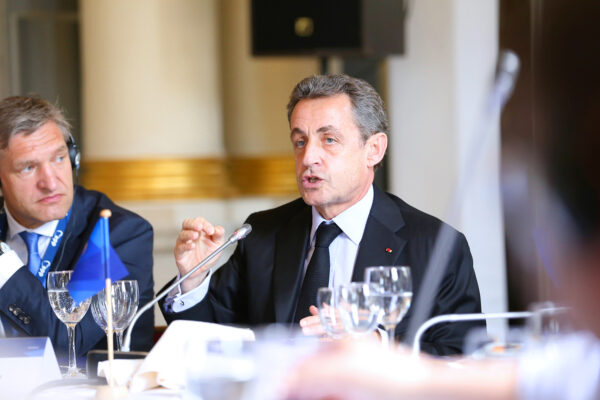
A major foreign-policy issue that divides the top three contenders for the French right’s presidential nomination is Russia.
BuzzFeed reports how Nicolas Sarkozy has transformed himself from a Vladimir Putin critic into a Vladimir Putin apologist since he lost the presidency in 2012.
The former president has criticized President François Hollande’s handling of relations with Russia. He argues the EU should suspend sanctions against Russia. And most controversially, the former president has endorsed a referendum annexing Crimea to Russia, a view that puts him at odds with most UN states.
François Fillon, Sarkozy’s former prime minister, has struck a conciliatory tone as well.
He told the magazine Valeurs actuelles this week it was “fortunate” Russia had intervened in the Syrian conflict, otherwise the self-proclaimed Islamic State might have reached Damascus by now.
In reality, Russia’s objective in Syria is to prop up the regime of Bashar al-Assad. It has not prioritized fighting the Islamic State, which mostly does battle with Western-backed forces in Iraq and Syria.
“Acute Russophilia”
Fillon and Sarkozy are expected to place second and third in the first voting round of their party’s presidential primary on Sunday.
Alain Juppé, another former prime minister who is the favorite to win the Republican nomination, is the only major candidate who has spoken out against what he calls an “acute Russophilia” on the French right.
Last year, Juppé — whose also twice served as French foreign minister — said he recognized the Gaullist tradition of seeking a balance in foreign relations between America and Russia.
“Russia is a big country,” he said. But at a certain point it must also be called to order.
“We do not annex our neighbors,” for example.
Return to the Atlantic
I argued here last year that Charles de Gaulle’s dream of a France equidistant between the East and the West had come to an end.
Ironically, it was Sarkozy who brought the dream to an end when he returned France to NATO’s command structure and revived the entente cordiale with the United Kingdom.
There is a chance the French return to the Atlantic will be reversed again as a result of Britain’s exit from the EU and the United States’ election of Donald Trump. With those two distancing themselves from the old continent, responsibility for security in Europe could fall on the shoulders of France and Germany and there are strong pro-Russian currents in both.
